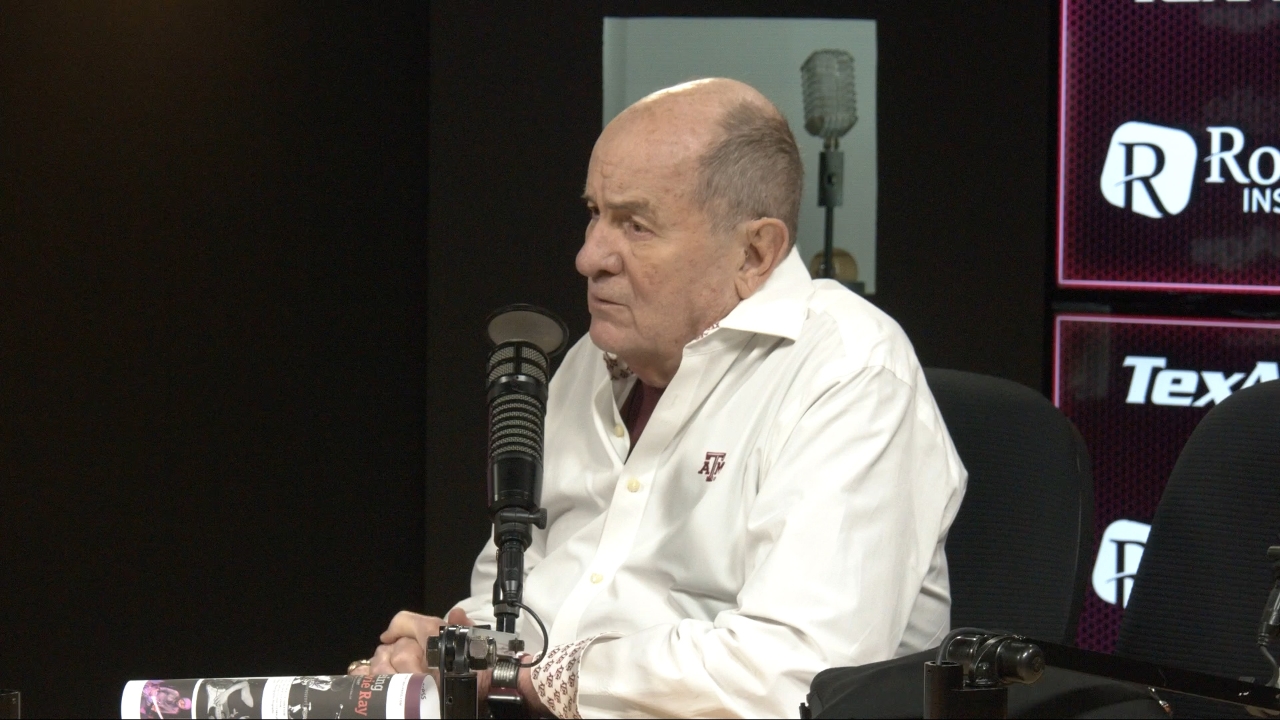Those are great stories.

Texas A&M Football
Author Gary Rollins on Smokey Harper, Bear Bryant and the Junction Boys
Key notes from Gary Rollins interview
- It was fun to call back on these old friends and hear their recollection of certain games and events. There were some fun things I learned in writing this book.
- Smokey Harper was probably one of the first athletic trainers in all of college football. In prior years, the coaches and assistants would treat the ankles and get players ready to play, but it didn't become a common practice until long after that point. Smokey came with hands-on experience, and the book talks about that. There was a book by Jim Dent called "The Junction Boys," and it got quite a bit of press. To sell books, Smokey was depicted as a drunk. It's pretty sad because those that knew him knew he wasn't a drunk, so I was asked if I would portray him accurately. Everyone loved Smokey. Bear Bryant thought he was a great man of character. Smokey was a remarkable person.
- Smokey got his name on a road trip in Georgia when his baseball team stopped in and bought some cigars. Smokey was out in the bullpen, knowing he wasn't going to play, so he lit up a cigar. Sure enough, they signaled him to come in and pitch, so he put the cigar in his pocket and went onto the field, and of course, his pants caught on fire. He was ‘Smokey’ from there on out.
- Smokey lied about his age to get into the Army, and he was sent over to France during World War I. He lost a lot of hearing in an explosion and had to wear hearing aids for the remainder of his life. But he came to A&M, Bryant leaned on him in many ways. The first year, Bryant was here was one of the first years players played both ways. They had to find out very quickly which players could handle it and which ones couldn't. Enter Junction and the attrition story of three buses being dwindled down to one. As I recall, Smokey was around 50 years old, and he had so much experience nearing the end of his training career, and he taught everyone what he knew.
- You had to realize that two-way playing required a lot of talent. Back then, if a player was dinged up and had to come out of the game, he had to be out until the next quarter. So you always had to be ready to go in. Players would be trying to stay underweight, so they would fudge their weight to stay off the lines. John David Crow was 205 pounds and would always make sure he turned in his weight after the other players so he would be lighter than some of the other guys on the team so he wouldn't be put on the offensive line. It was a much different time back then.
- We played a game against TCU, and it started in sunlight. By the middle of the game, it was down pouring. Tornadoes were forming at the game. TCU had an excellent team, but neither team liked each other. At halftime, the players were so muddy that no one could see the numbers on their jerseys. We had no extra jerseys either because of penny pinchers, so they made one of the players, Bill Apple, who hadn't gone in the game yet, give his jersey to John David Crow for the announcers to be able to tell him apart from the rest. John David goes out playing like usual, and the weather clears up, and the announcers were raving about this new kid, saying about how sensational he was and how he was the hero of the game for A&M. After the game, people are going up to Apple talking about how proud they were of him, and even the day, after in his hometown of Hallettsville, his local newspaper had Apple on the cover dubbed as the hero of the game, having no idea the entire time it was John David Crow.
- Bobby Nichols, at the time, was one of the best players being recruited out of Kentucky. Paul Hornung was the best in the state and went to Notre Dame, as we all know. Bobby was probably second in the state, and Bear Byrant was recruiting him to play football at Kentucky. One day while he was in high school, he was in a car accident and spent 57 days in the hospital with broken bones. At the time, there was doubt that he would play again. One day, his high school coach came by the hospital and told him that Bear Bryant was still going to honor his football scholarship, only now it wasn't at Kentucky. It was at Texas A&M, an all-male military school he had never heard of. He came here and played golf and ended up turning professional on the PGA Tour.
- One last Smokey story; in 1957, Smokey was talking to Homer Norton, coach of the 1939 national champion team. Smokey didn't know who he was talking to and was raving about how his squad of boys would have smoked the '39 squad, and Norton was just smiling and laughing. He leaves, and one of the guys goes up to Smokey and asks him if he knew who that was. He said he didn't, and when told it was the coach of the 1939 team, he was embarrassed and grumbling about how he needed to get the battery in his hearing aid replaced. He was an exceptional man.
Never miss the latest news from TexAgs!
Join our free email list
